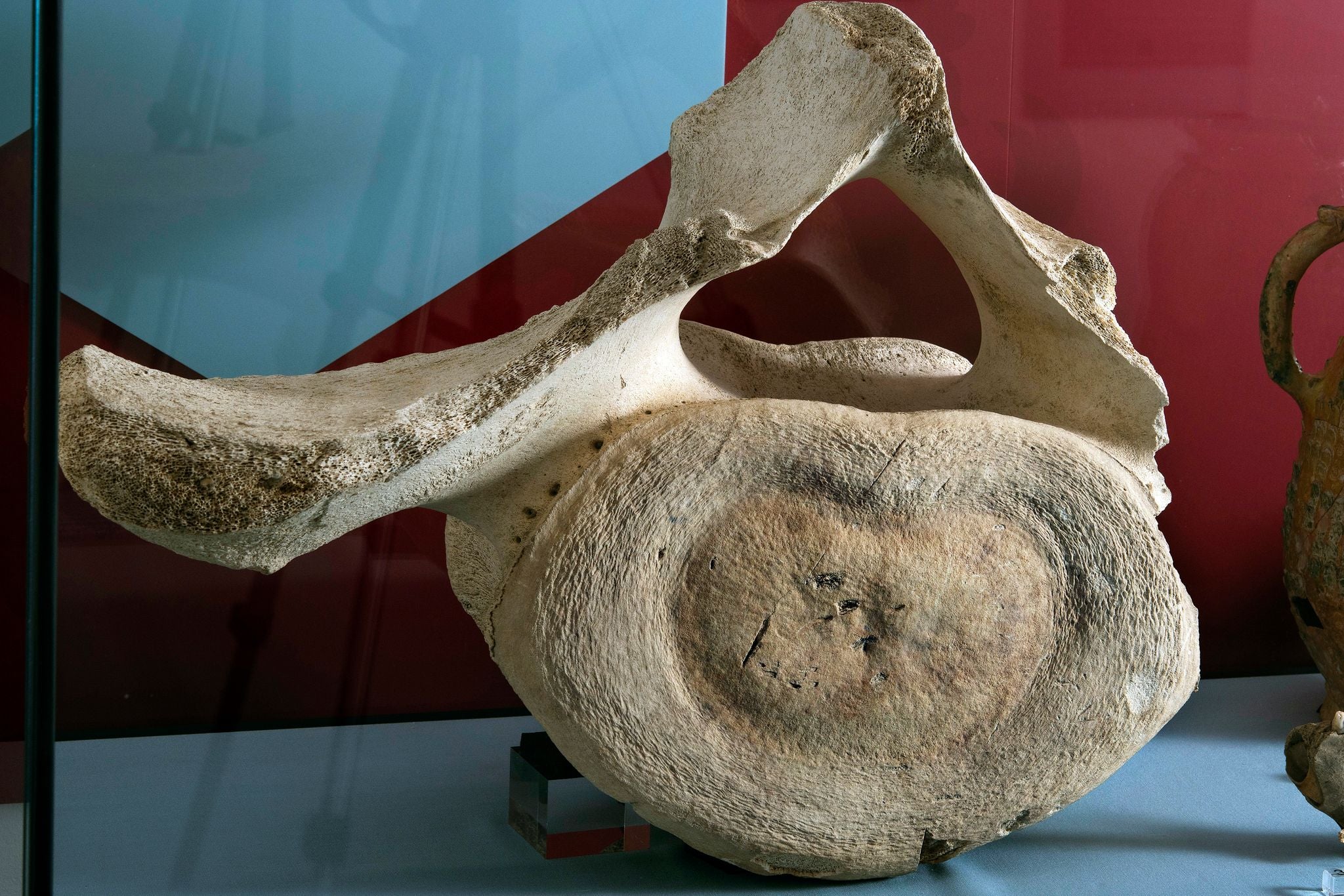Medieval whale bone discovered at land-locked castle goes on display
A concentration of the bones were found scattered near the kitchen uncovering the exotic diet of the castle’s then-residents.

A rare medieval whale bone has gone on display where it was discovered at Launceston Castle in Cornwall.
The 13th century bone, which measures more than half a metre across, was one of around 20 broken vertebrae, rib sections and small pieces of bone discovered during excavations at the land-locked castle.
A concentration of the bones were found scattered near the kitchen uncovering the exotic diet of the castle’s medieval residents at a time when whale meat was known as the “King’s fish.”
English Heritage said whalers of the medieval period would not have been able to catch a whale of this size, suggesting the bones came from a beached whale.
Dr Ian Leins, English Heritage’s curator of collections and interiors, said: “The mysterious whale vertebra at Launceston Castle was a puzzling discovery, but its existence actually greatly informs our knowledge of the castle’s inhabitants.
“We know the bones date to the 13th century and at this time the castle was owned by Richard, Earl of Cornwall, who was King Henry III’s brother and one of the wealthiest men in Europe.
“On his visits to the castle, Richard hosted great feasts attended by high-ranking officials and, while abhorrent to most people today, the serving and eating of whale meat would have been a symbol of his high status and power.
“There is every possibility that this great but unfortunate whale was the dish of the day. It’s a real thrill to be able to return the whale vertebra to the castle to be viewed by visitors today.”
The bone is being displayed in a new exhibition exploring Launceston Castle’s changing role from royal residence to a place of execution.
Pig, deer, and goose remains will also be exhibited at the historic site showcasing the luxurious past of castle life.
Founded after the Norman conquest, Launceston Castle served as an important fortress and centre of government in Cornwall during the 13th and 14th centuries when it was an aristocratic residence for the Earls and Dukes of Cornwall.
It was later transformed into a squalid prison with George Fox, founder of the Quakers, it’s most famous prisoner.
Launceston Castle is open every day until October 30.
Bookmark popover
Removed from bookmarks